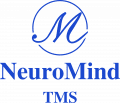When dealing with depression, finding the right treatment can be overwhelming. Many individuals are unsure whether to seek help from a depression specialist or a therapist for depression. This decision plays a crucial role in your mental health journey, so it’s important to understand the differences between these professionals and when each is most beneficial.

What is a Depression Specialist?
A depression specialist is typically a psychiatrist or a medical doctor with expertise in diagnosing and treating mood disorders like depression. They are trained to assess both mental and physical health conditions, offering a comprehensive approach to treatment. One of the main distinctions is that a depression specialist can prescribe medication, which is a significant part of managing more severe forms of depression.
When to See a Depression Specialist
You may need a depression specialist in the following situations:
- Severe Symptoms: If you’re experiencing intense symptoms such as suicidal thoughts, severe mood swings, or a complete inability to function, a depression specialist can provide immediate medical intervention.
- Medication Management: If your depression requires medication, a specialist can determine the most appropriate type and dosage for you, as well as monitor your progress.
- Treatment-Resistant Depression: For those who have tried therapy or other treatments without success, a depression specialist can explore alternative treatment options, including medication or advanced therapies like Transcranial Magnetic Stimulation (TMS).
What is a Therapist for Depression?
A therapist for depression is generally a psychologist, counselor, or social worker who focuses on talk therapy. These professionals help you manage your depression by addressing its emotional and psychological aspects. Therapy methods like Cognitive Behavioral Therapy (CBT) or Dialectical Behavior Therapy (DBT) are commonly used by therapists to help clients develop coping strategies and change negative thought patterns.
When to See a Therapist for Depression
A therapist for depression may be more suitable if:
- Mild to Moderate Depression: For those with less severe symptoms, talk therapy can be highly effective in helping you understand and manage your depression.
- No Need for Medication: If medication isn’t required or you prefer to explore non-medication options, a therapist for depression can offer strategies to manage symptoms.
- Emotional and Behavioral Support: Therapists help address the root causes of your depression, offering tools to cope with stress, anxiety, and other triggers.
Depression Specialist vs. Therapist for Depression: Key Differences
Choosing between a depression specialist and a therapist for depression depends largely on your needs. Here are the key differences:
- Medical Approach: A depression specialist can prescribe medication and is trained in medical treatments for depression, while therapists typically focus on talk therapy and behavioral interventions.
- Focus of Treatment: Depression specialists often treat more severe cases requiring medical intervention, while therapists work best with mild to moderate depression.
- Integrated Care: A depression specialist may offer a more holistic view, addressing both physical and mental health aspects. A therapist for depression focuses on the emotional and psychological side of the disorder.
Should You See Both a Depression Specialist and a Therapist?
For many people, the best approach to managing depression is a combination of both a depression specialist and a therapist for depression. This approach ensures that all aspects of the condition are addressed. A specialist can manage medication and medical treatments, while the therapist helps you develop coping mechanisms and emotional resilience.
Benefits of Integrated Care
- Comprehensive Treatment: Medication helps to stabilize symptoms, while therapy addresses emotional and behavioral patterns contributing to depression.
- Personalized Approach: Seeing both professionals allows for a more tailored treatment plan, addressing both the biological and psychological factors of depression.
Conclusion
Whether you choose to see a depression specialist or a therapist for depression depends on the severity of your symptoms and the type of treatment you prefer. For severe cases that require medication, a depression specialist may be your best option. If you are dealing with mild to moderate depression and prefer talk therapy, a therapist might be more suitable.
In many cases, a combination of both professionals offers the most comprehensive care. If you’re unsure which route to take, consult with your primary care doctor or a mental health professional to help guide your decision.
Choosing the right support is essential for managing depression effectively and living a healthier, happier life.
Reference URL: https://medium.com/@theneuromind/depression-specialist-vs-therapist-who-should-you-see-for-depression-293bdfaa0683


